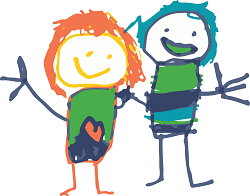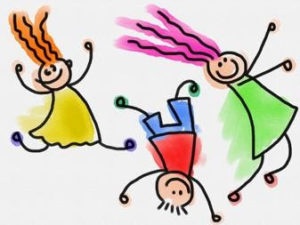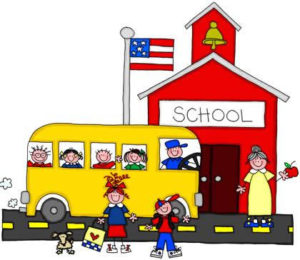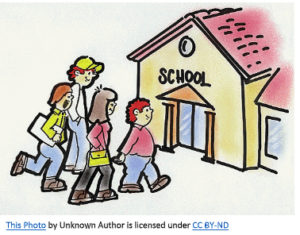Debra Matell Cohen, Ed.D.
John Winthrop Wright Director of Ethical Education
Character.org
Every child has at some point lied to their parents. The lie doesn’t always need to be “big and bold” such as participating in a TikTok “devious lick.” Her lies could be as simple as telling a parent that she completed her homework or cleaned her room.
Research shows that parents want their children to tell the truth. But do parents know how to raise children who care about being honest? When to intervene? What to say? What not to say?
Experts tell us punishing by grounding or depriving children of activities they like does not send the right message. Rather, parents need to find ways to help their kids understand why lying is wrong and how lying erodes trust. Parents’ focus should be on skill-building rather than on punishment.
As with so many parent-child issues, communication is key. In addition, the appropriate response should also depend on why your child is lying. Is she lying to get attention? Or to prevent you from learning that he’s having trouble understanding his homework assignments?
I’ve created the chart below to help parents respond in the right way, depending on the age of their child and the reason he or she may be lying. It’s based upon information from the American Academy of Child & Adolescent Psychiatry as well as researchers who have studied children’s lying behaviors. I hope the information helps you understand your child’s behavior and how to frame the situation as a “teachable moment” for your child.
What Parents Can Do When Their Children Are Lying
| Age Group | Lying Behavior | Recommended Response |
|---|---|---|
| Toddlers (Ages 2-3) | • Making false statements • Not recognizing the difference between reality and fantasy | • It’s best to respond to their lies with facts rather than punishment. • Share with your child the reality of what they’re saying or doing; knowing when it’s make-believe versus real life is an important distinction for them to learn. |
| Preschool years (Ages 4-5) | • Children lie at this stage in order to conceal misconduct. • They now understand that certain behaviors are not OK and they do their best to cover up or deny. | • This is the age where your child needs to understand the importance of telling the truth. • As your child’s language skills increase, talk to them about “making good choices” and discuss why lying is wrong. |
| Elementary School | • Children at this age have developed the ability to deliberately tell a lie by making up a story. • As their verbal abilities develop, these stories tend to get more elaborate and involved. | • Focus on skill building rather than punishing your child. Find out why they are lying. Is your child feeling left out? Help your child develop the problem solving skills to address the situation rather than feeling the need to fabricate. • Model truth-telling behaviors. |
| Middle and High School | • Children at this age are more likely to lie to fit in with their peers or to avoid consequences • They may also lie to cover up risky or dangerous behavior • They also begin to understand “white lies” | • Discussion should focus on consequences as well as why parents and others put limits into place for their children. • Parents also need to help their children differentiate between this “prosocial” lying and other types of lies. |
My hope is that the chart above will help every parent recognize that lying is a natural part of their child’s socialization and development. However, what’s most important to remember is how critical it is for you to model honesty and reinforce that lying is never okay. In so many ways, honesty is a keepsake, a gift that you will give to you children and that they will pass on to their children. “Honesty is the best policy” or “You’re only as good as your word” are not just memes or phrases for a poster on a wall. They are “forever keepsakes” that will equip your children to be honest no matter where they go or what they do in life.
Interested in learning more?
Watch for the subsequent parts of this series and sign up to receive the “Ethics in Action” blog and webinar series in your Inbox.
Part 1: Why Do Kids Lie? (Overview)
Part 3: What Teachers Can Do When Their Students are Lying
Part 4: Why Do People Lie at Work and What Can Leaders Do About It?
Part 5: Webinar: A Conversation with Dr. Kang Lee on Why People Lie/a>
In the months ahead, our series will also explore Why Do Kids Steal? and Why Do Kids Cheat?
To sign-up for our “Ethics in Action” blog and webinar series, click here.
Other resources for you and your family:
Dr. Nancy Darling’s research about teens and lying
Parenting books about lying:
Raising Kids with Character by Elizabeth Berger
Why Kids Lie: How Parents Can Encourage Truthfulness by Paul Ekman
Why Do Children Lie: Encouraging Honesty in Children by Abimola Olayinka
Children’s books about lying:
The Berenstain Bears and the Truth by Stan and Jan Berenstain (Ages 3-7)
Howard B. Wigglebottom and the Monkey on His Back: A Tale About Telling the Truth by Howard Binkow and Susan F. Cornelison (Ages 4-9)
Liar, Liar (series) by Gary Paulsen (Ages 8-12)
As an Amazon Associate, Character.org earns from qualifying purchases.










